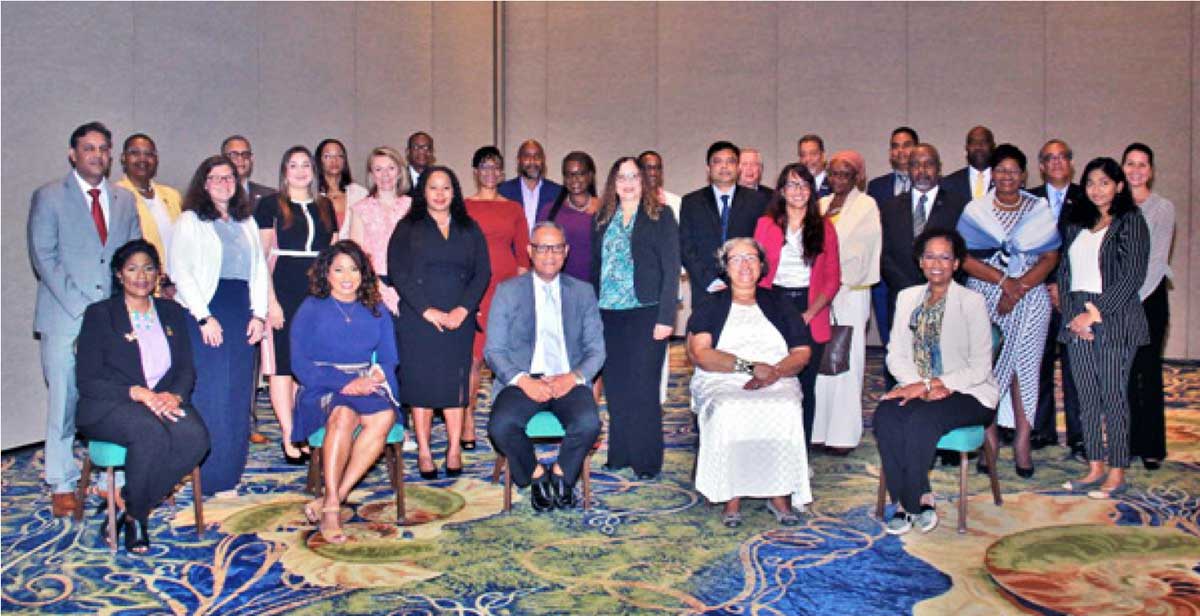
The Caribbean region was blessed with countless lives saved during the deadly COVID pandemic by the dedicated action of the Caribbean Public Health Agency (CARPHA) and numerous public and private sector and inter-governmental partners.
Health challenges such as the novel coronavirus are not easy. To overcome them requires teams of experts working together to contribute their skill and knowledge acquired over many years. CARPHA’s public health strategies and the region’s collaboration was crucial in saving lives during the pandemic.
It’s worth remembering that during the COVID-19 pandemic, different regions of countries uncovered unique findings, often happening at different times. So, collaboration, promoted energetically by CARPHA, enabled health care providers to prepare and also helped disseminate accurate information faster.
Given that the Caribbean is the most tourism-dependent region in the world, the health of the economies of the region is closely related to the health of the Caribbean’s travel and tourism industry.
Last month, CARPHA’s regional Tourism and Health Programme (THP) was in the spotlight at the Regional Tourism and Health Steering Committee and Stakeholders Meeting in the Bahamas. This meeting, which preceded CARPHA’s 67th Annual Health and Research Conference, brought together local, regional and international public and private health and tourism stakeholders to discuss the impact and measures for sustainability of the THP after seven years of implementation.
The THP is one of CARPHA’s innovative programmes that addresses the health, food safety and environmental sanitation (HSE) solutions to the associated threats impacting on sustainable tourism in the Caribbean through real-time, early warning and response surveillance systems, response, guidelines, capacity building, HSE standards, policy, advocacy and partnerships, and a travelers health award. The goal is to enhance the health, safety and security of citizens and visitors while thereby contributing to the sustainability and resilience of Caribbean tourism and its economies.
Stakeholders applauded the implementation of visitor-based surveillance and quick response to illness, building capacity for preventing and controlling illnesses, guiding the tourism sector during the COVID-19 pandemic, and making the tourism product healthier and safer.
Country users and partners shared many successful outcomes and impacts as a result of implementing the THP at the country-level and regionally. And all stakeholders unanimously agreed on the critical importance of continued implementation of the THP for improving health, regional health security and economic recovery.
Bahamas Minister of Health and Wellness Dr. Michael Darville, noted that since the implementation of the THP, it yielded many returns and several properties attained the Healthier, Safer Tourism (HST) Stamp. Bahamas Director-General of Tourism Latia Duncombe said as a participating country, the Bahamas benefited from the resources and the capacity building the THP has made available.
Dr. Joy St. John, Executive Director of CARPHA, underscored the importance of partnership in the implementation of the programme: “It is imperative that we collectively support the tourism sector as it evolves to its full potential by ensuring that these partnerships are productive and sustained for the overall safety of citizens, the sector itself, and visitors alike,” she said.
Dr. Lisa Indar, Director of CARPHA’s Surveillance, Disease Prevention and Control Division and Head of the THP, reemphasized the need for sustainable approaches learned from the current pandemic and past outbreaks: “As we applaud the work of CARPHA’s member states, their tourism and health sectors as well as our regional and international partners, we need to think about the future; what is next. We need to create environments for the longevity of the THP that will in turn, protect the health and … tourism sustainability in the Caribbean region.”
Mechanisms for continued and sustainable implementation of the Inter-American Development Bank (IDB)-funded program discussed and agreed on were improved resource mobilization; advocacy, promotion, marketing and branding; institutionalization and efficacy; and health and tourism public and private partnerships.
CARPHA has recognized that the modern way of addressing public health issues includes collaborative science, so when it assembles outstanding experts with diverse perspectives to work on common problems, public health is improved and families and regional economies have opportunities to be healthier.













